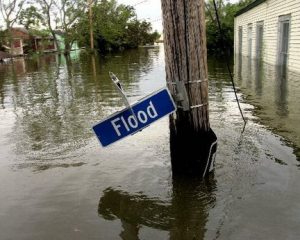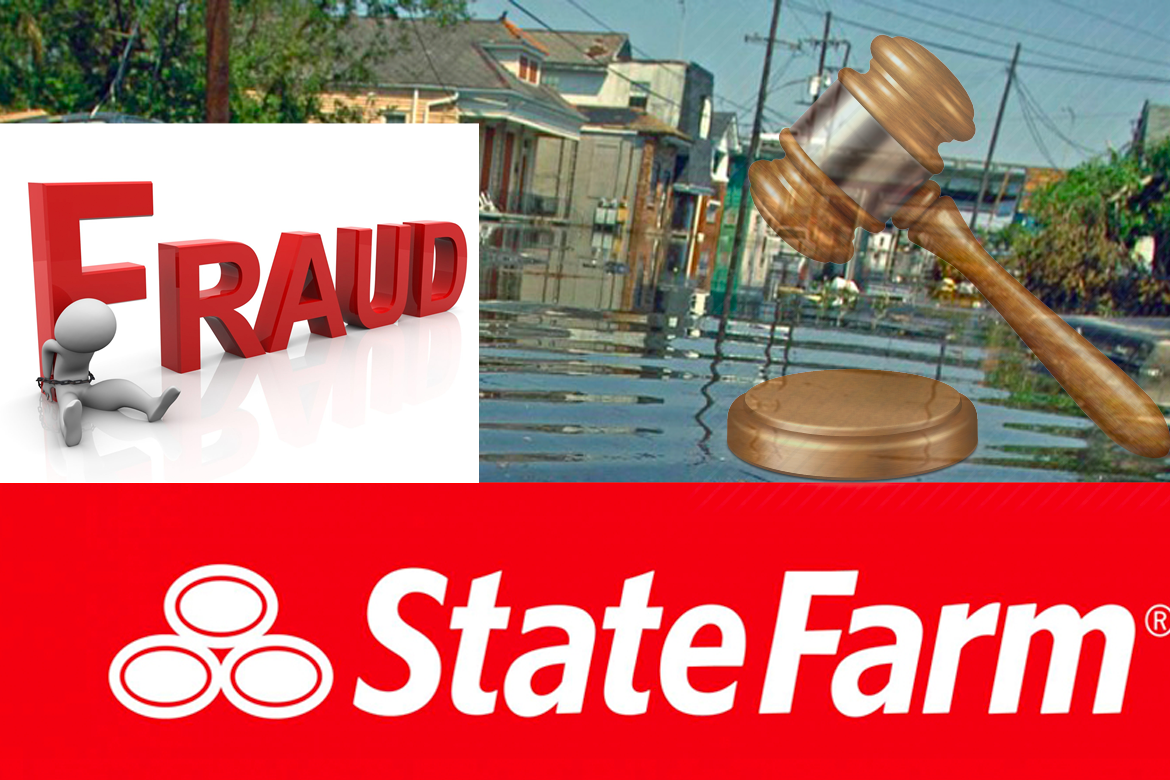Last month, the United States Supreme Court served State Farm justice by upholding the Fifth Circuit’s Rigsby decision against State Farm, refusing to dismiss the 2013 jury verdict which found State Farm guilty of defrauding the federal government through the federally backed flood insurance program after Hurricane Katrina. After Hurricane Katrina hit the Gulf Coast in 2005, residents whose homes were damaged or destroyed turned to their insurance companies for money to rebuild their homes and lives. Most homeowners along the coast carried two insurance policies, one protecting their home from wind damage, the other protecting their home from flood damage. A private insurance company, like State Farm, would often issue both policies, but wind claims were paid by the private insurer, and flood claims were paid from the federal treasury. As explained by the Fifth Circuit Court of Appeals in United States of America et rel. Cori Rigsby; Kerri Rigsby v. State Farm Fire & Casualty Co., this arrangement generates a conflict of interest: the private insurer has an incentive to classify hurricane damage as flood damage to limit the amount of money it has to pay out of its own private funds.
 After Hurricane Katrina hit the Gulf Coast in 2005, residents whose homes were damaged or destroyed turned to their insurance companies for money to rebuild their homes and lives. Most homeowners along the coast carried two insurance policies, one protecting their home from wind damage, the other protecting their home from flood damage. A private insurance company, like State Farm, would often issue both policies, but wind claims were paid by the private insurer, and flood claims were paid from the federal treasury. As explained by the Fifth Circuit Court of Appeals in United States of America et rel. Cori Rigsby; Kerri Rigsby v. State Farm Fire & Casualty Co., this arrangement generates a conflict of interest: the private insurer has an incentive to classify hurricane damage as flood damage to limit the amount of money it has to pay out of its own private funds. This very conflict of interest led
After Hurricane Katrina hit the Gulf Coast in 2005, residents whose homes were damaged or destroyed turned to their insurance companies for money to rebuild their homes and lives. Most homeowners along the coast carried two insurance policies, one protecting their home from wind damage, the other protecting their home from flood damage. A private insurance company, like State Farm, would often issue both policies, but wind claims were paid by the private insurer, and flood claims were paid from the federal treasury. As explained by the Fifth Circuit Court of Appeals in United States of America et rel. Cori Rigsby; Kerri Rigsby v. State Farm Fire & Casualty Co., this arrangement generates a conflict of interest: the private insurer has an incentive to classify hurricane damage as flood damage to limit the amount of money it has to pay out of its own private funds. This very conflict of interest led
This very conflict of interest led insurance claims adjuster and sisters, Cori and Kerri Rigsby, to file a civil lawsuit, blowing the whistle on State Farm’s fraudulent practice of directing claims adjusters like the Rigsby sisters to misclassify wind damage as flood damage to shift the liability to the federally backed National Flood Insurance Program to spare State Farm from having to pay the claim out of its own pocket. The sisters won their case in 2013 with a federal jury verdict finding State Farm guilty of fraud on the federal government in the amount of $250,000. State Farm was ordered to pay $758,250 in damages. Cori and Kerri Rigsby, as whistle-blowers, were awarded over $227,000 for disclosing the fraud under the False Claims Act and nearly $3 million in attorney’s fees and expenses. State Farm appealed the verdict to the New Orleans Fifth Circuit Court of Appeals on multiple points, but the court of Appeals upheld the jury’s verdict and the district court’s

The sisters won their case in 2013 with a federal jury verdict finding State Farm guilty of fraud on the federal government in the amount of $250,000. State Farm was ordered to pay $758,250 in damages. Cori and Kerri Rigsby, as whistle-blowers, were awarded over $227,000 for disclosing the fraud under the False Claims Act and nearly $3 million in attorney’s fees and expenses. State Farm appealed the verdict to the New Orleans Fifth Circuit Court of Appeals on multiple points, but the court of Appeals upheld the jury’s verdict and the district court’s findings, and even allowed the Rigsby sisters additional discovery. State Farm fought the verdict all the way to the Supreme Court, arguing that the case and verdict should be dismissed because the sisters’ then-lawyer, Dickie Scruggs, had violated a court order requiring the details of the case be kept under seal by emailing the sealed court
State Farm fought the verdict all the way to the Supreme Court, arguing that the case and verdict should be dismissed because the sisters’ then-lawyer, Dickie Scruggs, had violated a court order requiring the details of the case be kept under seal by emailing the sealed court filing to journalists at national news outlets like ABC and the New York Times. The case was argued before the Supreme Court on November 1, 2016.
On December 6, 2016, in a unanimous decision, the Supreme Court disagreed with State Farm, concluding that Scruggs’ disclosure to the media did not warrant dismissal of the case. The Supreme Court reasoned that the seal provision was enacted to “encourage more private enforcement suits” and to allay the government’s concern that a private filing of a civil complaint would alert defendants to a pending federal criminal investigation. Justice Anthony Kennedy, opening for the Court, wrote that because the seal requirement was meant mainly to protect the government’s interest, “it would make little sense to adopt a rigid interpretation of the seal provision that prejudices the Government by depriving it of needed assistance from private parties.” The Court’s full decision can be found here.
The Supreme Court’s decision is a victory for private citizens and encourages those who are exposed to fraud on the government to speak up and act, and not be intimidated by backlash for blowing the whistle. Mostyn Law handles cases that fall under the False Claims Act and is privileged to represent whistleblowers across the country. Mostyn Law is an ally for private citizens fighting their own Goliath and would be honored to join your fight.

